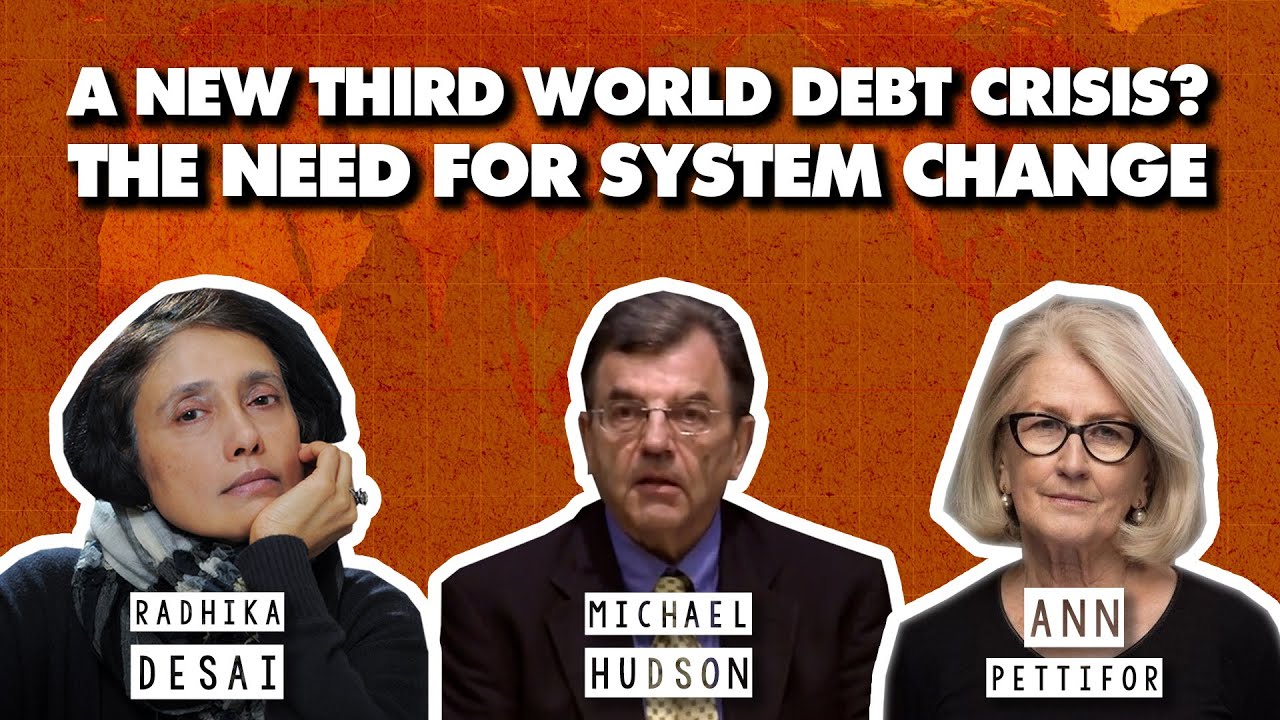next ep https://youtube.com/watch?v=x13cSy8S8To
soviet style capitalism
What did she mean by this.
Also the vague jabs about the yuan the other hosts pushed back on. ??? Ma'am
More background on this subject and Pettifor appreciated. Just getting into all the based woke libs like Stiglitz and Ha-Joon Chang
We speedrunning



sure sure
I just don’t know, until we have a level of awareness about that, we’re not going to be able to tackle them because they are invisible. You can’t see them.
You know, you can see, you can go to Washington and bang on the door of the IMF and the World Bank. You can throw bricks at the IMF and the World Bank.
You can’t throw bricks at the asset management sector and what it’s doing, because it’s utterly invisible. So that poses the left with an enormous problem.
And secondly, I just wanted to say one of my great passions, as you know, we began the Jubilee 2000 campaign. We’re backed by the churches and by the NGOs.
And they said to us, look, cancel the debts because these countries can’t pay. So we began a cancel the debt campaign, but no sooner had we got going on, then it became clear to me that we could write off the debt.
And we did write off about $100 billion of debt. And then in 2005, I worked with Ngozi Okonjo-Wala and we cleared $30 billion of debt for Nigeria. But that wasn’t going to prevent the buildup of future debts, really.
So we needed what we have in private capitalism, which is a form of bankruptcy for countries. Now that is opposed by countries. The last thing they want anyone to think is that they’re bankrupt. And I understand that completely.
But there comes a point at which they’re not solvent. They’re not able to mobilize the hard currency needed to repay the debt. And in those circumstances, we need an independent arbitration process between creditor and debtor.
And that, Radhika, is where we say, sorry, the creditor made the mistake here. I always think of Charles Dickens’ novels, right?
So they saw the logic of having a framework of dissolving and dealing with debt, which we cannot see in the world economy, because creditors, the shadow banking system, the IMF, the World Bank, but also governments are too blind with their own power to understand that actually they would benefit the whole of the world economy.
If they had a system of arbitration where there was a decision made, sorry, you lent money to build a nuclear power station on a volcanic fault, you will lose that money. You know, it’s not rocket science.
I think I may have said this in the first session, so forgive me if I’m repeating myself, but we failed in the campaign to call for this independent arbitration process and we’ve watched the dramas of Argentina, because you’re quite right, Radhika, Argentina is the IMF’s oldest client.
When I last looked, and that was some time ago, 2001, Argentina had been an IMF client for 50 years. So for 50 years, Argentina’s economic policies were dictated by the IMF, and it only led to one succession of debt crises after another.
So, I mean, Argentina is the case, is our case, the case to be made.
And after the 2001 crisis, there was an examination by the independent, whatever they are called at the IMF, into the way in which the institution had conducted itself in Argentina in 2001.
And they found it should have failed dismally, but then, and for a while, so interesting, because in 2003, Nigeria wrote off or wrote down $30 billion of debt.
There was a period between 2003-7 where all the higher income, low income countries, Brazil, Nigeria, all of those countries pulled their money out of the IMF. The IMF and the World Bank were almost going bust, right?
The guys employed by the IMF and the World Bank, all of whom have got two PhDs, not one, each one of them has two PhDs, had no work. And then thank God came the financial crisis and Greece, and suddenly they were back in business.
So, there was a period in which low income, I call them low income, Third World countries, whatever you want to call them, understood they had the power to withdraw from and get out from underneath the IMF. And they did for a while.
Wait, is this you talking or are you quoting someone?
Quoting. Got tired of doing the carrots
lol Gotcha. And thanks!
Still sounds Trot and I don't agree with it.
I don't see how the idea of financing development of a green belt across africa under the control of a group of NATO countries can be called soviet in any sense because of the demand for it to be a profitable venture. The context makes it insane
True enough.